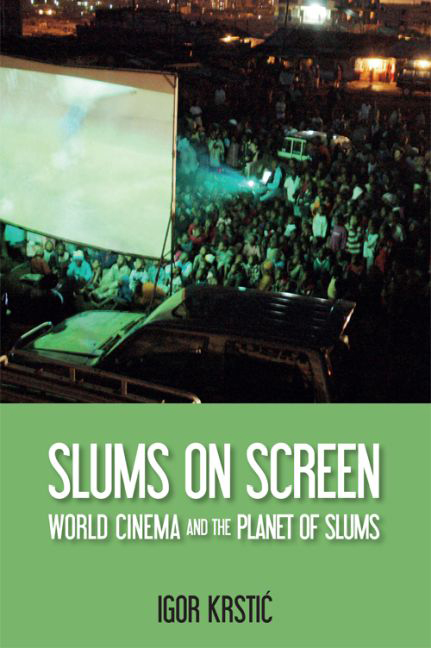1 - Slums on and off Screen
Summary
[T]he major sites of cultural globalization in the twenty-first century are the emerging megacities of what used to be called the Third World.
Andreas HuyssenWith the development of the social sciences in the nineteenth century, cities as well as their slums have become an important subject of research and exploration. Film scholars have, however, only recently begun to explore the historical relations between cinema and cities, and hitherto rather neglected to study likewise relations between cinema and slums. The central question is how to bring disciplines based on the exegesis of empirical data, such as sociology, in connection with film studies, a discipline that was rather concerned with studying film as a ‘language’ of artistic expression (narrative, mise-en-scène, cinematography, editing, and so on) or with exegesis, the reading of films according to a specific hermeneutic method (psychoanalysis, feminism, semiotics, structuralism, narratology, etc.)? Mark Shiel discusses questions like these and argues that the ‘interdisciplinary contact between Film Studies and Sociology (among other disciplines, including Cultural Studies, Geography, and Urban Studies) can be profoundly useful and fruitful in addressing key issues which the two disciplines share (or ought to share)’ (2001: 2).
There have been a number of such ‘useful and fruitful’ dialogues between these disciplines (the Frankfurt School being the most prominent example), but also between the social sciences and film or media practice. In fact, social science insights, concepts or methods (e.g. environmental determinism, culture of poverty, participatory observation) did often have an impact on how slums and slum-dwellers have been represented on screen. This book does not, however, attempt to do ‘sociology through the projector’, and neither do I suggest that cinematic representations of slums are always examples of some kind of ‘applied sociology’. It is rather that in some cases (such as with regard to How The Other Half Lives, Housing Problems, Moi, un noir or De Cierta Manera) strong connections to the social sciences are evident, while others (like for instance Cidade de Deus) invite interpretants – often social scientists themselves – to draw analogies to social theories or concepts.
- Type
- Chapter
- Information
- Slums on ScreenWorld Cinema and the Planet of Slums, pp. 16 - 40Publisher: Edinburgh University PressPrint publication year: 2016



